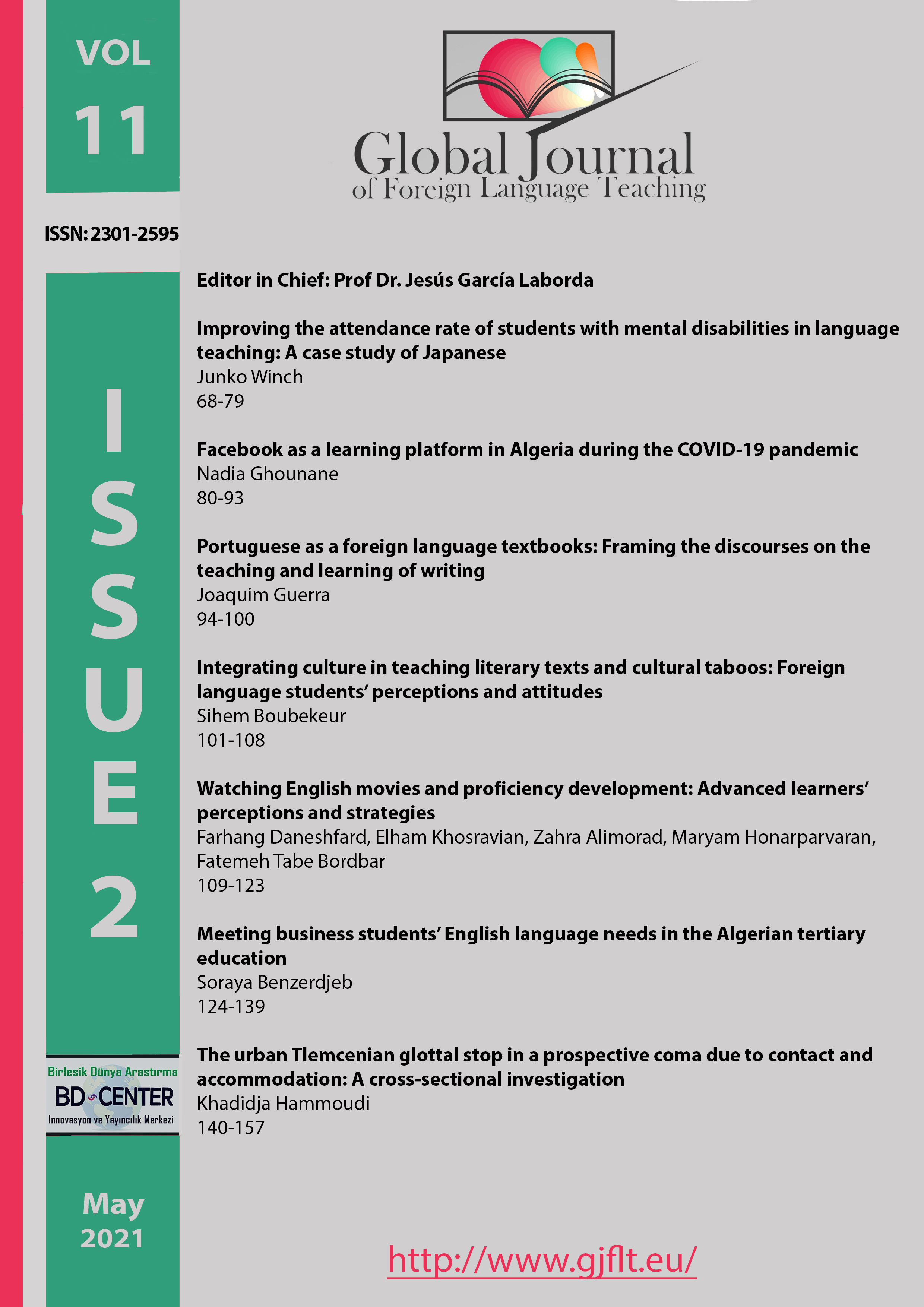Facebook as a learning platform in Algeria during the COVID-19 pandemic
Main Article Content
Abstract
With the dawn of high-tech phone applications and the constant spread of internet uses, social media networking sites have become a refuge for billions of users. Facebook is the leading social media tool and this research work aims to project light into the teaching/learning situation in the Algerian context, mainly the teaching of the English Language. A total of 80 Master’s students and 10 teachers from the Department of English Language and Literature at Saida were used as a case study. This is to provide an inkling on the most employed social platform in the teaching and learning process during the absence of face-to-face interaction. The research tools were mainly a questionnaire, an interview and a post-test assessment. From our results, Facebook was the second leading e-learning tool after Moodle platform during the pandemic. The paper recommends some strategies on how Facebook can be employed effectively in the teaching and learning process after the pandemic.
Keywords: COVID-19 pandemic, educational platforms, EFL learners, Facebook, higher education.
Downloads
Article Details

This work is licensed under a Creative Commons Attribution 4.0 International License.
Authors who publish with this journal agree to the following terms:- Authors retain copyright and grant the journal right of first publication with the work simultaneously licensed under a Creative Commons Attribution License that allows others to share the work with an acknowledgement of the work's authorship and initial publication in this journal.
- Authors are able to enter into separate, additional contractual arrangements for the non-exclusive distribution of the journal's published version of the work (e.g., post it to an institutional repository or publish it in a book), with an acknowledgement of its initial publication in this journal.
- Authors are permitted and encouraged to post their work online (e.g., in institutional repositories or on their website) prior to and during the submission process, as it can lead to productive exchanges, as well as earlier and greater citation of published work (SeeThe Effect of Open Access).
